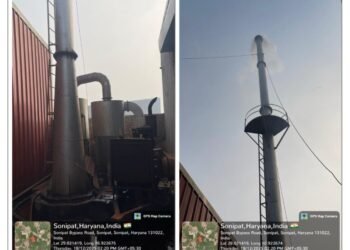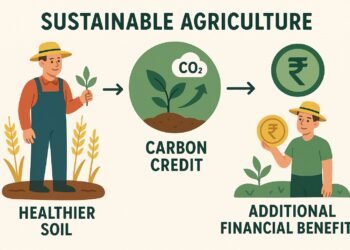Investment costs for the recommended systemic change are significant, but below the spending without this systemic change: USD 65 billion per year as opposed to USD 113 billion per year.
Plastic pollution could reduce by 80 percent by 2040 if countries and companies make deep policy and market shifts using existing technologies, a new report finds.
The report has been written by the UN Environment Programme (UNEP) in collaboration with plastic pollution experts from the University of Portsmouth’s Global Plastic Policy Centre and other organisations. *
The report is being released ahead of a second round of negotiations in Paris on a global agreement to beat plastic pollution. It outlines the magnitude and nature of the changes required to end plastic pollution and create a circular economy.
‘Turning off the Tap: How the world can end plastic pollution and create a circular economy’ is a solutions-focused analysis of concrete practices, market shifts, and policies that can inform government thinking and business action.
“The way we produce, use and dispose of plastics is polluting ecosystems, creating risks for human health and destabilising the climate,” said Inger Andersen, UNEP Executive Director. “This UNEP report lays out a roadmap to dramatically reduce these risks through adopting a circular approach that keeps plastics out of ecosystems, out of our bodies and in the economy. If we follow this roadmap, including in negotiations on the plastic pollution deal, we can deliver major economic, social and environmental wins.”
One of the report’s lead authors, Professor Steve Fletcher, Director of the Global Plastics Policy Centre at the University of Portsmouth, said: “This report provides a roadmap for governments and an action plan for businesses to end plastic pollution by 2040, but success relies on urgent simultaneous action across borders. A five-year delay in executing the necessary shifts mean higher costs and additional 80 million metric tons of plastic pollution by 2040. A systemic integrated approach to regulatory instruments and policies taking actions across the life cycle is crucial, as these then reinforce each other towards the goal of transforming the economy.”
Also Read: Role of India in BC COP-14 on E-Waste, Chemicals and Plastic Pollutions
Market shifts needed for the market transformation toward circularity
To slash plastic pollution by 80 percent globally by 2040, the report suggests first eliminating problematic and unnecessary plastics to reduce the size of the problem. Subsequently, the report calls for three market shifts – reuse, recycle and reorient and diversify products:
- Reuse: Promoting reuse options, including refillable bottles, bulk dispensers, deposit-return-schemes, packaging take-back schemes etc, can reduce 30 percent of plastic pollution by 2040. To realise its potential, governments must help build a stronger business case for reusables.
- Recycle: Reducing plastic pollution by an additional 20 percent by 2040 can be achieved if recycling becomes a more stable and profitable venture. Removing fossil fuels subsidies, enforcing design guidelines to enhance recyclability, and other measures would increase the share of economically recyclable plastics from 21 to 50 percent.
- Reorient and diversify: Careful replacement of products such as plastic wrappers, sachets and takeaway items with products made from alternative materials (such as paper or compostable materials) can deliver an additional 17 percent decrease in plastic pollution.
Even with the measures above, 100 million metric tons of plastics from single-use and short-lived products will still need to be safely dealt with annually by 2040 – together with a significant legacy of existing plastic pollution. This can be addressed by setting and implementing design and safety standards for disposing of non-recyclable plastic waste, and by making manufacturers responsible for products shedding microplastics, among others.
Overall, the shift to a circular economy would result in USD 1.27 trillion in savings, considering costs and recycling revenues. A further USD 3.25 trillion would be saved from avoided externalities such as health, climate, air pollution, marine ecosystem degradation, and litigation-related costs. This shift could also result in a net increase of 700,000 jobs by 2040, mostly in low-income countries, significantly improving the livelihoods of millions of workers in informal settings.
Investment costs for the recommended systemic change are significant, but below the spending without this systemic change: USD 65 billion per year as opposed to USD 113 billion per year. Much of this can be mobilised by shifting planned investments for new production facilities – no longer needed through reduction in material needs – or a levy on virgin plastic production into the necessary circular infrastructure. Yet time is of the essence: a five-year delay may lead to an increase of 80 million metric tons of plastic pollution by 2040.
The highest costs in both a throwaway and circular economy are operational. With regulation to ensure plastics are designed to be circular, Extended Producer Responsibility (EPR) schemes can cover these operational costs of ensuring the system’s circularity through requiring producers to finance the collection, recycling and responsible end-of-life disposal of plastic products. Internationally agreed policies can help overcome the limits of national planning and business action, sustain a flourishing circular global plastics economy, unlock business opportunities and create jobs. These may include agreed criteria for plastic products that could be banned, a cross-border knowledge baseline, rules on necessary minimum operating standards of EPR schemes and other standards.
The report recommends that a global fiscal framework could be part of international policies to enable recycled materials to compete on a level playing field with virgin materials, create an economy of scale for solutions, and establish monitoring systems and financing mechanisms.
Crucially, policymakers are encouraged to embrace an approach that integrates regulatory instruments and policies tackling actions across the life cycle, as these are mutually reinforcing towards the goal of transforming the economy. For example, design rules to make products economically recyclable can be combined with targets to incorporate recycled content and fiscal incentives for recycling plants.
The report also addresses specific policies, including standards for design, safety, and compostable and biodegradable plastics; targets for minimum recycling; EPR schemes; taxes; bans; communication strategies; public procurement, and labelling.
Lead authors of the report are: UNEP: Llorenç Milà i Canals (lead coordinator); Alison Cairns; Peggy Lefort; Allan Meso; Andrew David Raine; Aphrodite Smagadi; Steven Stone; Elisa Tonda. Systemiq: Yoni Shiran; José de la Fuente; Julia Koskella; Anne Titia Bove; Eline Boon. University of Portsmouth: Steve Fletcher; Antaya March; Keiron Roberts. KnowlEdge Srl: Andrea Bassi





















